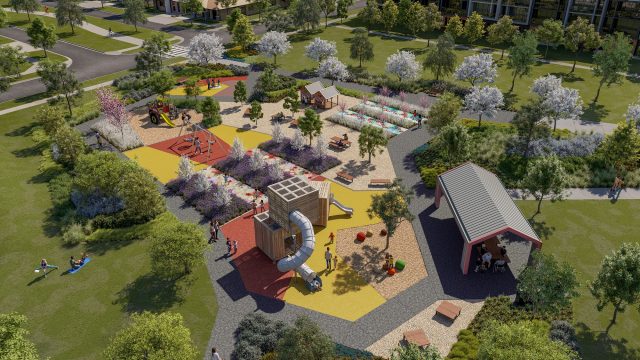Buying your first block of land and building your dream home might seem like a daunting experience. But we’re here to give you all the information you need to get you on your exciting journey to home ownership faster. Here are the answers to our most frequently asked questions.
Where do I start the buying process?
We know that building your dream home is really exciting, but before making any decisions it’s important to speak with a mortgage advisor to help you understand all your options. Securing a home loan that best suits your needs is paramount, so shop around with several lenders and ask them to guide you through the process. If you’re not sure where to start, let us know and we can provide you with a range of lenders you can talk to.
How do I choose the right lot?
You know your budget and family’s needs, now all that’s left is to find the perfect lot on which to build your future home. Do you select your dream home design first, decide on the right location based on your family’s needs, or simply stick to what fits your budget? No matter what factors are important in choosing your ideal lot, building a new home can be life-changing, and we can’t wait for you to get started! Click to read more on three key points which must be considered when choosing the right lot for you.
How do I choose the right home?
Just like choosing your land, there are some key questions that can help you determine your ideal home. You need to consider:
• Space requirements – How many bedrooms do you require? Single storey or double storey? What will your family’s needs be in the future?
• Design – Modern or contemporary? What energy rating do you want your home to have? Do you want an outdoor entertaining area?
If you need help finding the right builder, we’ve made that easy for you. Visit our website for a list of recommended builders.
What is the first home owner’s grant?
You may be eligible to receive the first home owner’s grant if your home is valued up to $750,000. A payment of up to $20,000 is available for eligible first home buyers. To see if you’re eligible, visit the State Revenue Office’s website
What is a land title?
A land title is an official record of who owns a piece of land. It can also include information about mortgages, covenants, caveats and easements affecting the land.
What is a plan of subdivision?
A plan that depicts the break-up of a piece of land, showing parcels of land, commonly called ‘lots’, that can be sold separately.
What is a covenant?
A covenant is a written agreement between the seller and purchaser of a piece of land restricting what the land can be used for. For example, restricting the type of building material the purchaser can use.
What is an easement?
An easement is a right held by someone to use land belonging to someone else for a specific purpose. Common examples of easements are drainage, sewerage and carriageway easements.
What is settlement?
Settlement is the process of completing the Contract of Sale. On the day of settlement, the legal documents for the block of land which enable you to be registered as the owner will be handed to you or your chosen conveyancer or mortgage lender, once you’ve paid the remaining balance of your purchase price. To avoid any delays, it’s important to confirm with your mortgage lender that you have signed all your mortgage documents and funds have been made available from your chosen financial institution prior to the settlement. You should also make sure you keep in touch with your conveyancer. They’ll assist you with finalising all the necessary details to effect settlement.
It’s always best to have a solicitor review this contract to make sure you are comfortable with your obligations before you sign the Contract of Sale. Keep in mind that there are fees involved in buying real estate or land, including government stamp duty, property searches, legal fees, mortgage insurance and loan application fees. You can get an indication of these fees from your mortgage advisor or financial institution.
Why do you have design guidelines?
All homes built at Windermere are subject to a set of Design Guidelines. The guidelines have been put in place to protect your investment and the integrity of the project. The key purpose of these Design Guidelines is to assist all owners in preparing an appropriate design response to achieve a consistently high quality of homes and landscaping at Windermere. For more information on our design guidelines, download a copy here.
What are the advantages of buying new?
There are many advantages of building a new home in a new community, compared to buying an established house. Some of these include lifestyle advantages, such as the ability to customise your home or benefiting from new or planned infrastructure, to financial benefits, including potential stamp duty savings, as well as those that can be gained from using more efficient building materials and appliances.
If you have any further questions, contact the Windermere Sales Team on 1300 008 555, we’d love to help!





